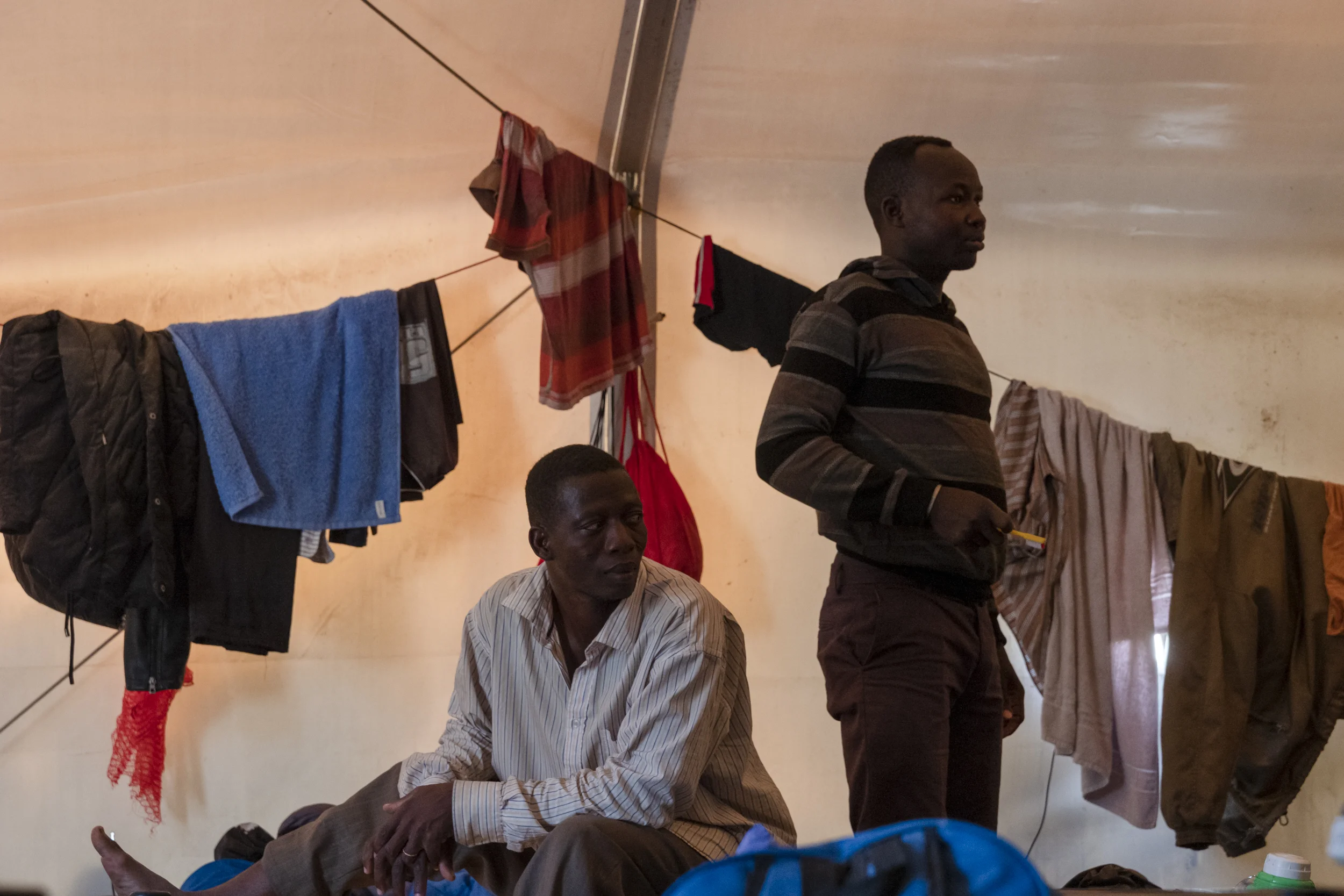
The Olive Grove - Moria Refugee Camp - Lesvos, Greece
Photographs and stories from my residency at Dirty Girls of Lesvos from 2018-2020.
These are people I spent time with, in and around the Moria refugee camp. They are more than their labels: refugee, irregular migrant, illegal, exile, asylum seeker, displaced, outcast. They are individuals. They are you and me.
From 2015-2021, Dirty Girls of Lesvos washed blankets, sleeping bags, and clothing for the 1000s of people detained on Lesvos and on the mainland.
A special thank you to Alison Terry-Evans, Dana Whitaker, Rachael LeClear, and Reema Bahnasy who supported me during shooting. They are not in the frame but they are part of every image.

Before the Rain
In the Olive Grove, an overflow area from the Moria camp proper, refugees build shelter and infrastructure using tents, tarps, blankets, sleeping bags, olive netting, branches, cardboard, pallets, and extension cords.

Tent 1423
2015 and 2016 saw over half a million refugees landing on the island of Lesvos—people fleeing from places such as Afghanistan, Syria, Iraq, the Congo, and Somalia. In 2015 there were sometimes up to 6000 refugees arriving on Lesvos daily. Most were able to leave the island after a few days.
Then, under the EU-Turkey agreement of March 2016, refugees were detained for long periods in camps and/or deported. In the summer of 2018, an average of 80 refugees landed each day.

Cradle
In these tents, three Afghan families share shelter, food, and childcare. This baby’s father came back empty-handed after 3 hours in a food line. Within minutes another family shared their bread and cucumbers.


"Wash It Instead"
Without adequate shelter, the blankets provided to new arrivals become much more than bedding. They are used as walls, floors, roofs, doors, mattresses, chairs, and cradles. Unclean blankets present the risk of scabies, bed bugs, and disease.
Dirty Girls of Lesvos collects blankets, washes them to hospital standards, and returns them to refugees in the camp. They have saved over 900 tons of material; without them, aid agencies and government bodies would send the used materials to landfill.


The Wall
Moria is a Greek military installation designed to accommodate 2500 persons. In the summer of 2018 there were close to 9000 refugees detained there. These people are standing on the camp wall to get a good view of an open-mic concert below.


Rana
Rana is 13 years old. She wants to be a film director. Like the other refugees in the camp, Rana’s family is waiting for the Greek authorities to either approve their application for asylum or deport them. When I asked her what she wishes for she said, “To get out of here.” Then she said, “What do you wish for?”


Risking a Gift
Robbery and violence are rampant in the camp. This woman was hesitant to take the food we brought for fear that word would get out and she would be attacked. Nevertheless she found a way to discreetly share the lamb stew and boylani bread with her neighbors.

Evening Swim
Local Greeks and refugees often share this spot on the bay to swim and rest in the shade.

Blanket Washing Day
In this tent which houses 125, two men look on as another refuses to give up his blankets to be washed. He has been in the camp for 2 years.


Baby Booties
We had tea with an Afghan woman who is crocheting booties to sell, and her son who apprenticed in Kabul to be a jeweler.





The Leap
These men enjoy a swim within view of the shores of Turkey.
Refugees who make it to Lesvos from Turkey pay smugglers large fees, escape arrest by the Turkish Coast Guard, and cross several miles of open sea in dinghies that often collapse.

Life Jackets
Refugees who attempt the crossing from Turkey are not aware that the life jackets they buy—manufactured as part of the smuggling industry—are often stuffed with straw, plastic bags, or dense foam.
Dirty Girls of Lesvos up-cycles life jackets and damaged blankets into messenger bags and solidarity bracelets and they assist in the environmental cleanup of the island's shores. They also collaborate with Love Welcomes working with refugees weaving welcome mats.